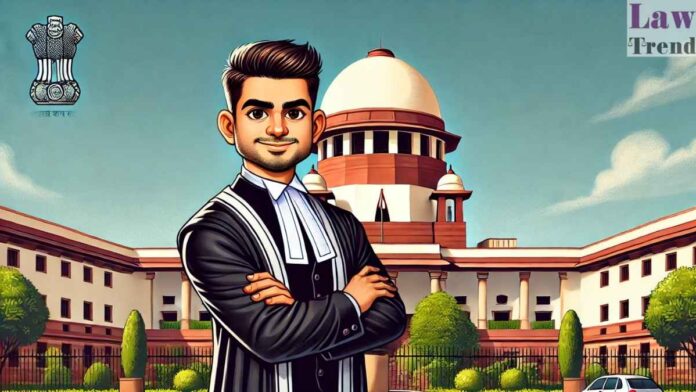The Supreme Court on Thursday delivered a split verdict on the disciplinary action to be taken against Advocate-on-Record (AoR) P. Soma Sundaram and advocate A. Muthukrishnan for alleged professional misconduct in the filing of a petition in a criminal matter titled N. Easwaranathan v. State.
The case was heard by a Bench comprising Justice Bela M. Trivedi and Justice Satish Chandra Sharma. Both judges concurred that the conduct of the advocates had compromised the dignity of the institution. However, they differed sharply on the nature and extent of the punishment to be imposed.
Justice Trivedi’s View: Suspension and Penalty
Justice Trivedi, expressing serious concern over the matter, directed that Sundaram’s name be suspended from the Supreme Court’s Advocate-on-Record Register for one month. Additionally, she imposed a cost of ₹1 lakh on advocate Muthukrishnan, who had assisted in filing the petition.
She emphasized the importance of maintaining ethical standards in the legal profession, observing:
“It is expected and hoped that the senior advocates practicing in the Supreme Court shall show serious concern about the repeated incidents of misconduct by the advocates practicing in the Supreme Court and take affirmative actions to uplift and raise standard of professionalism, ethics and morals in the legal profession, to have better Bar and in turn, better judiciary in the country.”
Justice Sharma’s View: Apology Sufficient, Punishment “Too Harsh”
Justice Satish Chandra Sharma, while acknowledging the impropriety of the lawyers’ conduct, disagreed with the severity of the punishment. He noted that both advocates had expressed sincere remorse and had apologized unconditionally.
Calling the disciplinary measures “too harsh,” he remarked:
“Striking the name of the AoR from the register will cast a stigma on the AoR who is from a small village in Tamil Nadu. Similarly, ₹1 lakh is too high a cost.”
Justice Sharma pointed out that several senior members of the Supreme Court Bar Association and the Advocates-on-Record Association had also requested leniency. He further stated:
“Both the advocates have expressed their remorse with a promise not to repeat the misconduct in future. Several eminent leaders of the Supreme Court Bar Association… have appealed to this court for mercy, which should not be ignored.”
He cautioned the lawyers to be more mindful of their duties in the future but declined to impose any punitive sanction.
Matter Referred to Chief Justice
Due to the divergence of opinion, the matter will now be placed before the Chief Justice of India for appropriate action and final determination.
Case Background
The issue arose in connection with a criminal case involving offences under the Scheduled Castes and Scheduled Tribes (Prevention of Atrocities) Act and the Indian Penal Code. The petitioner, represented by Sundaram, had been convicted by the trial court and sentenced to three years’ imprisonment. The Madras High Court dismissed the criminal appeal in 2023.
A subsequent appeal was filed before the Supreme Court challenging the High Court’s decision, accompanied by a plea for exemption from surrendering. The apex court rejected the exemption request and directed the accused to surrender within two weeks.
However, a fresh special leave petition was filed without complying with the earlier direction, prompting the Court to issue a non-bailable warrant on April 9. The repeated filings and alleged distortion of facts led the Bench to question the conduct of the AoR, culminating in Thursday’s split verdict.
The decision on disciplinary action now awaits further orders from the Chief Justice of India.




